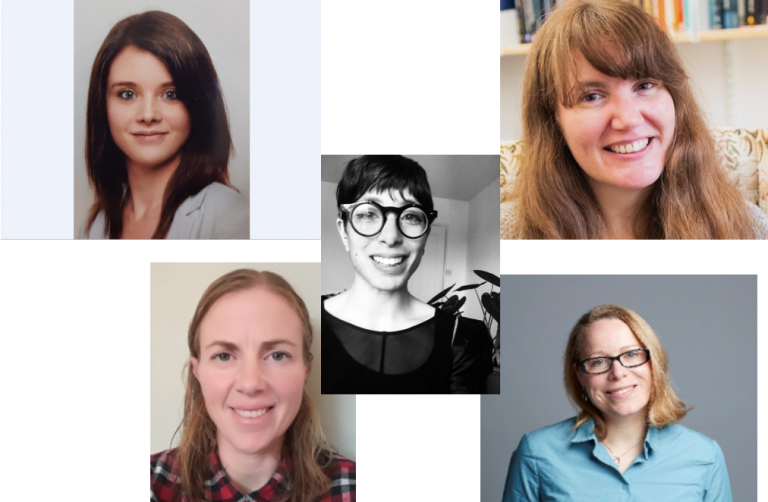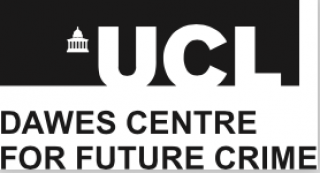Cybercrime Conference: fake news, legislative responses, and women in cyber
21 July 2021, 1:00 pm–4:15 pm

This free-to-attend event will address current themes in cybercrime and cybersecurity research such as fake news and legislative responses.
This event is free.
Event Information
Open to
- All
Availability
- Yes
Cost
- Free
Organiser
-
Vaseem Khan
This free-to-attend online event will feature a range of speakers addressing current themes in cybercrime and cybersecurity research. Industry and policy practitioners will come together with academic speakers to examine these issues.
Key themes that will be explored are:
- Legislative response to cybercrime e.g. Computer Misuse Act, Domestic Abuse Bill
- Fake news
We will also reflect on the emergence of women in the cybercrime field.
Organised by the UCL Dawes Centre for Future Crime and the UCL Security and Crime Science EDI Committee.
1.00pm – Arrival
1.05pm – Welcome and short introduction to UCL Dawes Centre for Future Crime Centre, Professor Shane Johnson, Director
Session 1 - Legislative and policing responses to cybercrime
1.15pm – Exploring eWhoring, Professor Alice Hutching, Director, Cambridge University Cybercrime Centre
1.35pm – Unpacking Image-Based Sexual Abuse Legislation, Frances Ridout, Director, Queen Mary Legal Advice Centre, Queen Mary University School of Law, and practising Barrister
1.55pm – Biocrime, Internet-of-Ingestible-Things and Cyber-biosecurity, Mariam Elgabry, Director, Enteromics Ltd
2.15pm – Panel with the above speakers, chaired by Dr Sherry Nakhaeizadeh, UCL Jill Dando Institute of Security and Crime Science
2.40pm – BREAK
Session 2 – Fake News and Disinformation
2.50pm – In the grey zone – tackling information manipulation in 2021, Sabrina Spieleder - Policy Officer, Division of Strategic Communications and Information Analysis, European External Action Service
3.10pm – How do we make people more aware of false information online? Designing effective visual warnings to fight the spread of online misinformation, Dr Fiona Carrol, Senior Lecturer in Digital Media & Smart Technologies, Cardiff Metropolitan University
3.30pm – Speaker to be confirmed
3.50pm – Panel with the above speakers, chaired by Dr Enrico Mariconti, UCL Jill Dando Institute of Security and Crime Science
4.15pm – END
Exploring eWhoring
eWhoring is the term used by offenders to refer to a social engineering technique where they imitate partners in virtual sexual encounters. I will provide an overview of the ‘eWhoring’ business model, drawing on more than 6k posts crawled from an online underground forum. Sexualised images are typically stolen and shared online, and then sold to unwitting customers who believe they have paid for a virtual sexual encounter. A variety of online services are used for carrying out this fraud type, including email, video, dating sites, social media, classified advertisements, and payment platforms.
Alice Hutchings
I am a University Lecturer in the Security Group at the Computer Laboratory, University of Cambridge. I am also Director of the Cambridge Cybercrime Centre, an interdisciplinary initiative combining expertise from computer science, criminology, and law. Specialising in cybercrime, I bridge the gap between criminology and computer science. Generally, my research interests include understanding cybercrime offenders, cybercrime events, and the prevention and disruption of online crime.
Unpacking Image-Based Sexual Abuse Legislation
This talk will explore the piecemeal nature of criminal legislation on image based sexual abuse and highlight the legal and practical difficulties prosecuting this types of behaviour. The talk will summarise the areas for reform and consider the Law Commission’s current work in the area. What are the unique evidential problems facing this type of cybercrime and are there practical considerations to be worked into the legal framework?
Frances Ridout
Frances Ridout is the Director of the Queen Mary Legal Advice Centre, Senior Lecturer and practising Barrister. Frances previously practiced at the self-employed criminal bar from 15 New Bridge Street Chambers where she remains an associate tenant. She specialises in image-based sexual abuse cases and upskirting; and leads the SPITE project at the Queen Mary Legal Advice Centre which offers free legal advice for victims of image based sexual abuse and facilitates school workshops on the topic.
Biocrime, Internet-of-Ingestible-Things and Cyber-biosecurity
Did you know that your DNA is only 0.1% unique to you – and that the ecosystem of microbes in your gut – your gut microbiome - is more than 90% unique to you?
So how does your microbial signature affect biocrime? Mariam Elgabry has led the very first Internet-of-Ingestible-Things™ workshop, supported by the Dawes centre for Future Crime, that brought cybersecurity experts and medical device regulatory bodies together, to think about cyber-biosecurity at design stage of medical devices and to inform policy on the Internet-of-Ingestible-Things™ such as smart gut-sensing pills.
Mariam Elgabry
Co-founder and Director of Enteromics, a MedTech start-up that builds smart pills for smart health. She has led award winning projects at AstraZeneca and Microsoft and her bio-crime research has been recognised by the UK Parliament Joint Committee on National Security.
In the grey zone – tackling information manipulation in 2021
The COVID-19 pandemic has brought the topic of disinformation into the broad daylight – it has proven to have a very tangible impact on societies and democracies around the globe. But what is disinformation, really? What is the nature of the threat and why is it so hard to find effective responses? Information manipulation and interference can cause considerable harm; however, it is in most cases not illegal. It happens in a grey zone that need specific responses from different stakeholders. Safeguarding freedom of expression, is there a silver bullet that can stop actors from engaging in such behaviour?
Sabrina Spieleder
Sabrina is a policy officer, specialising in tackling foreign information manipulation and interference at the European External Action Service. Her main responsibilities include policy development on the threat as well as cooperation with international partners. Before joining the EEAS, Sabrina worked as a policy officer at the German Federal Foreign Office and was the main contact point within the Foreign Office for foreign information manipulation and interference.
How do we make people more aware of false information online? Designing effective visual warnings to fight the spread of online misinformation.
Misinformation has become a common part of our online lives. During Covid-19, we saw a lot of average well-meaning friends and family sharing messages/ posts that were not always accurate. This had an impact on people’s behaviour around the virus and the decisions they made and the opinions they formed. This presentation will discuss some of the mechanisms that people use to identify misinformation online. It will share some early research findings around effective online warnings and cautions designed to help people to detect and counteract the spread of misinformation.
Fiona Carroll
Fiona Carroll is a Reader in Human Computer Interaction with the School of Technologies, Cardiff Met University, Wales. Her research over the past nineteen years has focused on the fast -changing relations between humans and digital technologies. As an accomplished academic, she has numerous peer reviewed publications and has partaken in cutting-edge research projects both at national and international levels


 Close
Close

